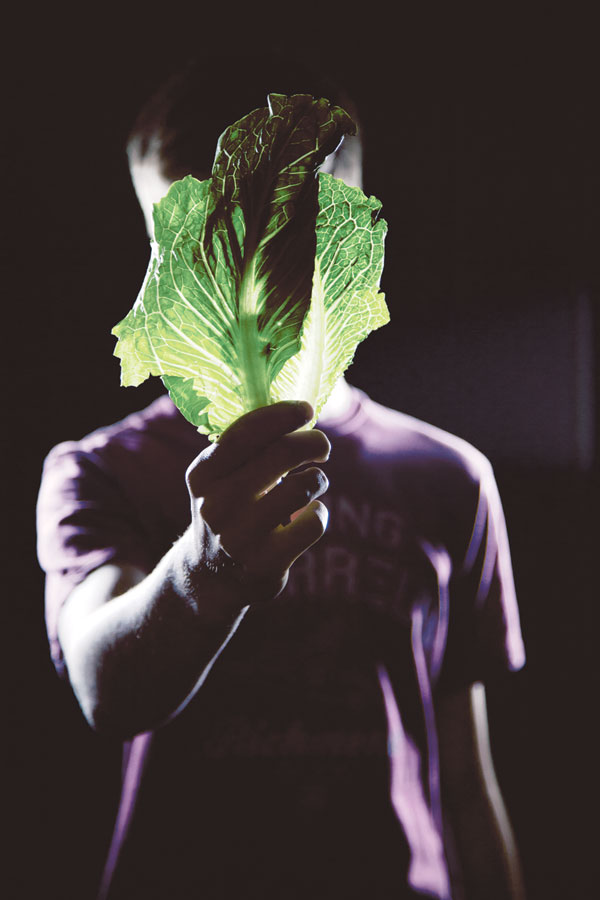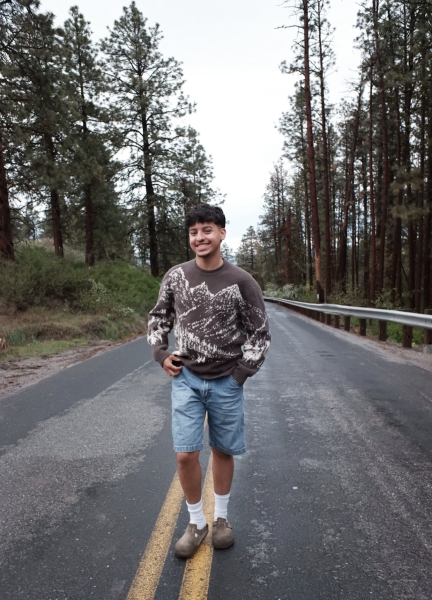Vegetarians have beef with the meat industry
We’ve all heard the horrors: chickens who have never seen the light of day, cows who are unable able to turn around in their cages, and pigs stuffed into pens by the thousands. The meat industry is known to produce cheap meat at the expense of animals. Some Wenatchee High School students and staff believe the first step to ending animal cruelty is to stop supporting the meat industry.
Math teacher Drew Gaylord has been a vegetarian for 17 years. He understands that humans are naturally omnivores, but believes the current state of the meat industry to be unhealthy.
“There are so many artificial hormones in the meat industry and unsanitary conditions that the animals live in that it’s just not healthy [to eat meat],” Gaylord said. “Animals do not get the respect they deserve. It’s not right that a chicken never leaves its cage. I don’t hate meat; it tastes good. If [animals] led natural lives, I would probably still eat meat.”
Freshman Veronica Litterell, who has been a vegetarian for almost three years, never liked meat. She stopped eating it because of this. She later learned about the cruelty of the meat industry and the health benefits of being vegetarian.
“There are a lot of misconceptions associated with meat,” Litterell said. “They lie about what goes on in the factories because they aren’t required to tell the public the whole truth. I’m not tempted to eat meat at all.”
Though refraining from meat consumption has many healthy benefits, senior Ariana Keyser has not been a vegetarian for five years because of those benefits. She first became a vegetarian because she thought the diet of a vegetarian was “interesting and different.” Shortly thereafter, she became an advocate for animal rights.
“Humans are not better than other animals. We should not promote killing,” Keyser said. “The conditions that those animals live in are inhumane and it’s not right.”
Keyser is not only concerned with how the animals are killed, but how they live. According to organicconsumers.org, each full-grown chicken in a factory farm has as little as six-tenths
of a square foot of space. Because of lack of space, they get agitated and sometimes revert to cannibalism. Farmers have started debeaking chickens because of this.
However, chickens are not the only victims of the meat industry. According to peta.org, farmers identify cows by pressing hot irons into their flesh. After cows have lived “on the range” for a year, they are shipped to auction lots where they are crammed into pens by the thousands.
When speaking these vegetarians, it is clear that they all love animals. They decided to refrain from eating meat because they either knew the corrupt ways of the industry or never enjoyed meat in the first place.
Then there’s senior Mary Rowles. She has been a vegetarian since the age of 4 because she “made the link that [meat] came from a living thing, and immediately knew it was wrong.”
“We were having lamb for dinner and I made the connection,” Rowles said. “You know how pork doesn’t sound like pig and beef doesn’t sound like cow? Lamb is just lamb.”
Rowles later learned about the horrors of the meat industry and continued on with vegetarianism to protest the inhumanity.
“Cows are not sustainable. If you look at the carbon footprint and how much energy it takes to produce cows vs. the rate we are eating them at, you’ll see that we can’t go on like this.”





